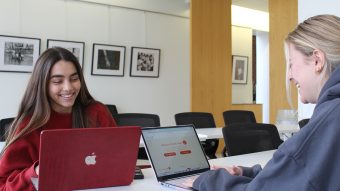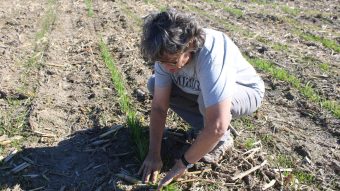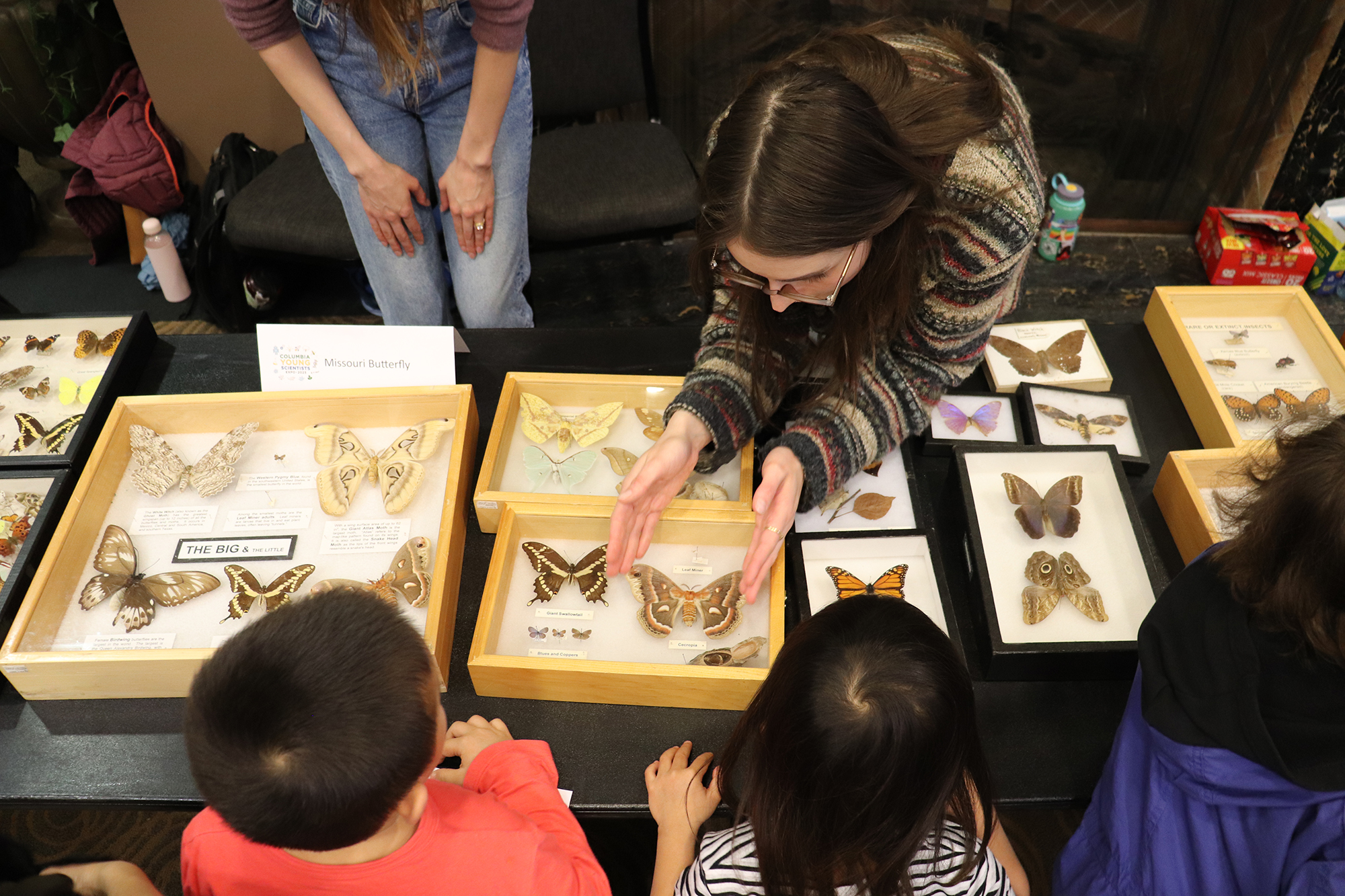
June 25, 2024
Contact: Courtney Perrett, cperrett@missouri.edu
Photos by Abbie Lankitus
Whether it’s petting a python, gazing at the stars or being transported back in time to the era of the dinosaurs, the fact remains: Science is fun. Researchers at the University of Missouri and around the world are working to bring their discoveries to the people who fund it and benefit from it. Through the leadership of the Center for Advancing Research Impact in Society (ARIS), a National Science Foundation (NSF) center based at Mizzou, scientists at MU and universities across the nation are learning best practices for showing the impact of their research at the community level.
The NSF defines broader impacts as the societal benefits of research, but Susan Renoe, Mizzou’s associate vice chancellor for research development and strategic partnerships and assistant professor of strategic communication in the Missouri School of Journalism, describes broader impacts (BI) as “where research meets people — the impact that research has, beyond academics, where it filters into communities and changes lives.”
Continuously funded since 2013, the center recently received a $9 million injection from the NSF to expand its focus on the scholarship of broader impacts while diversifying the research ecosystem.
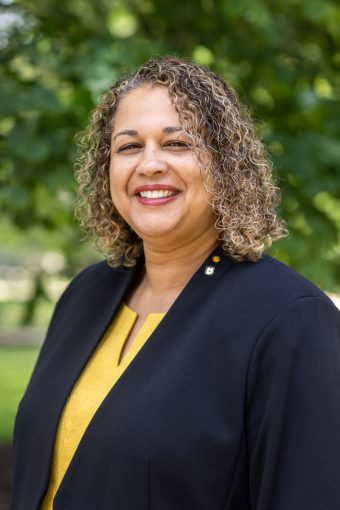
Led by Renoe, ARIS plays a part in fulfilling Mizzou’s land-grant mission by advancing policies and practices in research to make it accessible to all.
Over the past decade, ARIS has grown into a national epicenter for broader impacts, outreach and community engagement — so much so that Renoe has presented to the National Science Board and other federal groups about the importance of the societal benefits of research.
Renoe said that the federal government is focused on elevating research that not only prioritizes input from members of the public but creates opportunities for community engagement. Through participating in national conversation and policy about broader impacts, ARIS elevates research by providing resources and professional development opportunities for scientists spanning disciplines of science, technology, arts and the humanities.
As one of the nation’s leading research universities, Mizzou is the ideal place to house ARIS and steward this goal. “It is a testament to the fact that Mizzou is a place where we aren't afraid to try new and innovative things,” Renoe said.
ARIS also stewards professional development and shares promising practices when collaborating with researchers and broader impacts practitioners at other institutions. The center is home to the “Broader Impacts Toolkit.” This resource includes a Guiding Principles document for BI, a BI planning checklist, the BI Wizard and a BI Project Rubric, which acts as a roadmap for researchers to follow when describing the societal impact of their proposed project — a key component in successful projects that receive funding from the NSF.
In its work to help institutions bring education and research advancements to the public, ARIS is home to a wide community of practice that includes, at the University of Missouri, The Connector, a collaborative research hub between the Mizzou Division of Research, Innovation and Impact and the Office of Extension and Engagement. The Connector brings the people, resources and ideas at Mizzou together with communities for the purpose of benefiting the people of Missouri, the nation and the world.
Some local examples of The Connector’s work include the Extra Credit series, where researchers host movie screenings and then participate in a panel to link pop-culture cinema with academia. Another example is The Connector Summer Enrichment Program, a collaboration with the Missouri After School Network (MASN) and its work with the Geology Department.
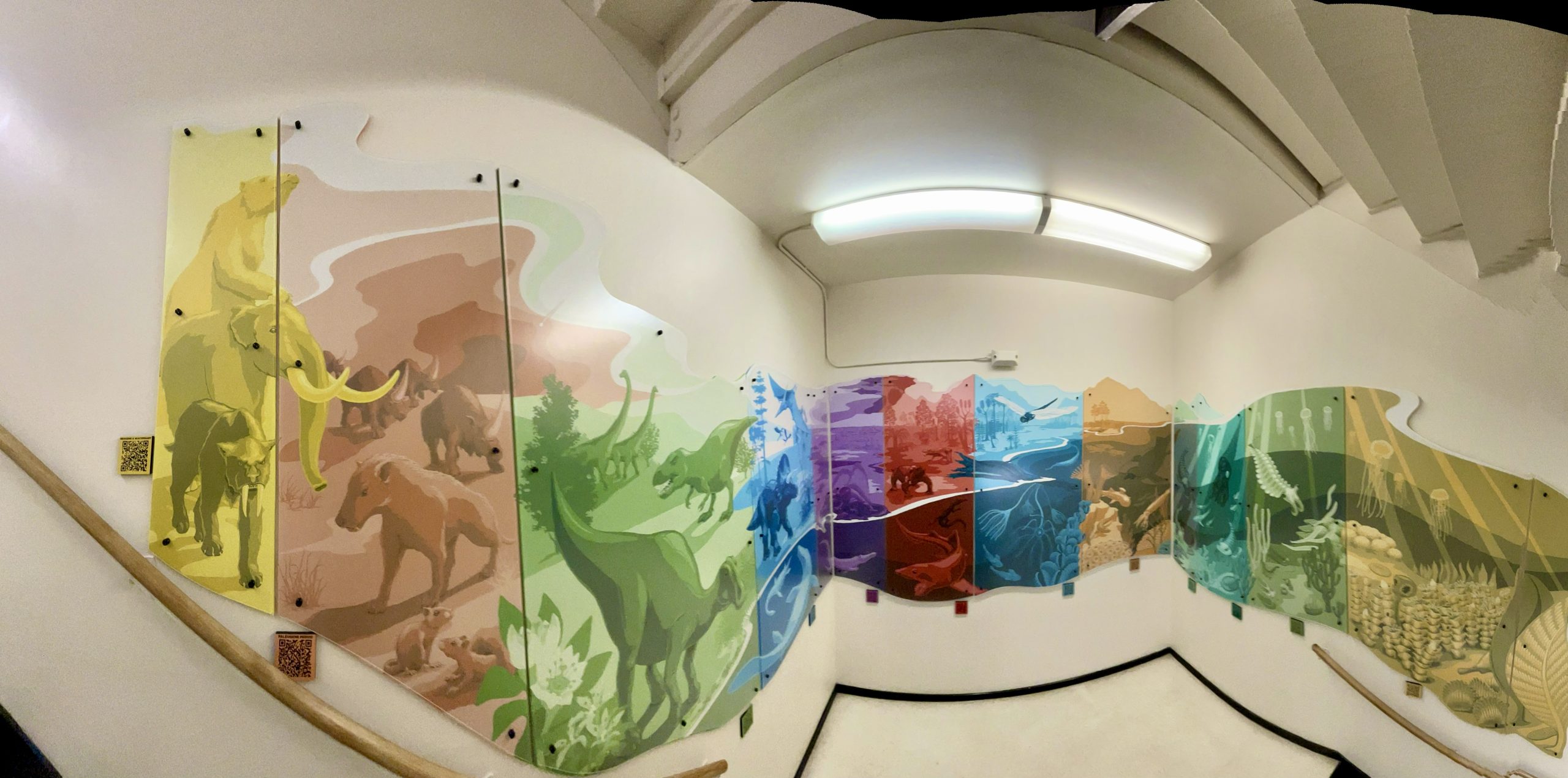
Mizzou paleobiology and geology professors John Huntley and Jim Schiffbauer, whose research focuses on fossils, collaborated with the Connector to find new, creative ways to involve the public in their fossil discovery research. With funding and guidance from NSF CAREER awards, the researchers debuted Mizzou’s new signature geology mural — an ornate collection of geologically accurate timeline pieces that illustrate a visual representation of Earth across 635 million years. The mural’s 12 panels combine art and science to form an engaging and informative piece that reflects the culmination of research, design and the installation of the piece.
“Broader impacts activities should involve things that make you excited,” Renoe said. “Where is the place your research and public engagement come together? At ARIS, we try to help researchers find that sweet spot.”

